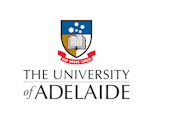Dr. Anne-Lise Chaber is a One Health expert who focuses on a cross-disciplinary approach to Human, Animal, and Ecosystem Health. After graduating from the Veterinary Faculty at the University of Liège (ULg) in Belgium, she obtained a Master of Science from the Royal Veterinary College and the Zoological Society of London (UK) and pursued her graduate training with a Ph.D. on disease detection and management at the wildlife-livestock-human interface with the ULg. Anne-Lise has ten years of practical experience as a field epidemiologist in England, Botswana, and the United Arab Emirates. She conducted research on the transmission of diseases including Foot and Mouth Disease, Q Fever, Brucella melitensis, MERS-Coronavirus at the wildlife-livestock-human interface, and on illegal wildlife trade such as the international bushmeat trade and the live exotic pet trade.
The ecosystem is like a living body, where each population, like organs, interact with each other and the disruption of this balance makes the entire system dysfunctional.
Understanding and protecting this system relies on collaborative and trans-disciplinary work. My approach to One Health is not focusing only on zoonotic diseases or emerging infectious diseases but also encompasses habitat destruction, climate warming, biodiversity loss, land use change, pollution, human demographic explosion, societal change and other dynamics that are threatening Human, Animal and Environmental Health.
My interests lie in wildlife conservation, anthropogenically driven diseases and the link between ecosystem, human and animal health (One Health). These key themes are generally interconnected in my work. My research projects focus on:
Human-Induced diseases: both infectious and non-infectious diseases caused by human activities and their environmental impact.
International wildlife trade, including bushmeat and live exotic pet trade: a threat to both biodiversity and public health. Our projects aim at collecting factual data and at bridging the knowledge-to-action gap.
Disease detection and management at the wildlife-livestock-human interface where collaborative work among different sectors is mandatory in order to understand complex ecological systems and to gather the necessary sound scientific data on disease ecology, vaccine efficacy, epidemiological situation, species sensitivity, host specificity, transmission patterns, vectors or climatic conditions affecting pathogens survival and vector competence.
Emerging infectious and zoonotic diseases
Wildlife conservation
My aim is to develop projects that are impactful in health and conservation terms.
I will be happy to engage in collaborative One health projects with researchers from a different background such as public health doctors, computer scientists, environmental lawyers, economists, botanists, GIS specialists…
Experience
-
–presentOne Health Lecturer, University of Adelaide
Education
-
2007University of Liège, Doctor of Veterinary Medicine
- Adelaide
- Article Feed
- ORCID
- Joined


